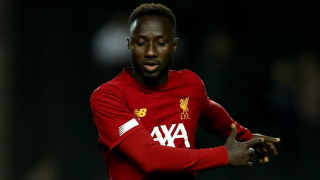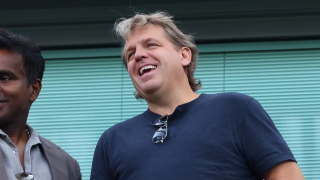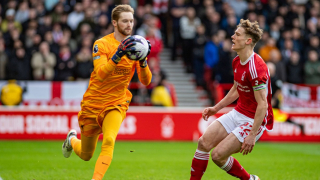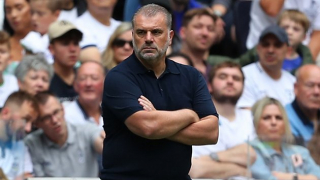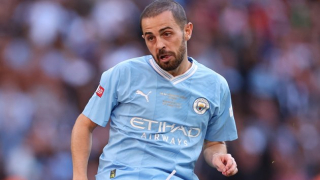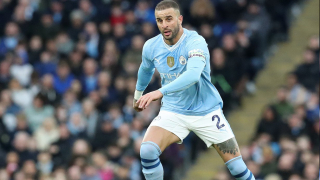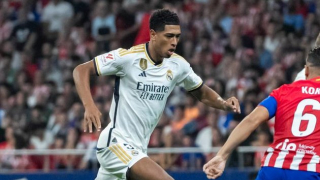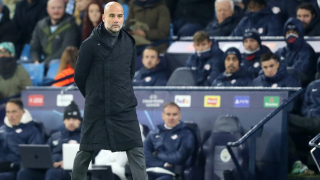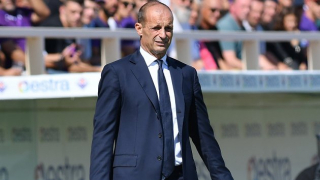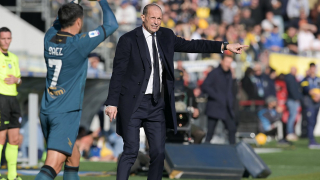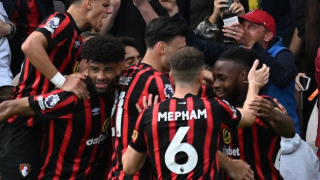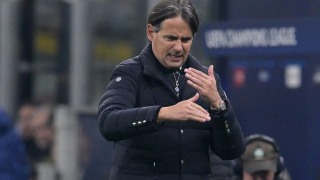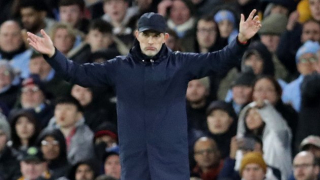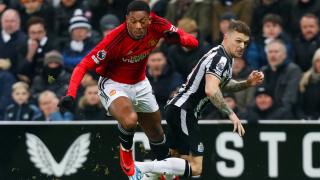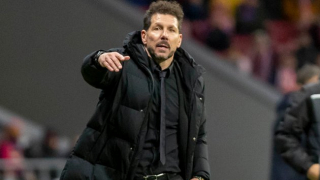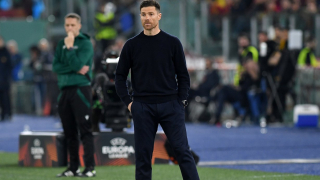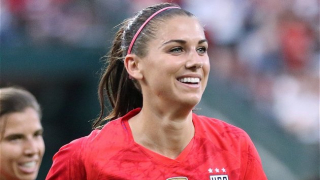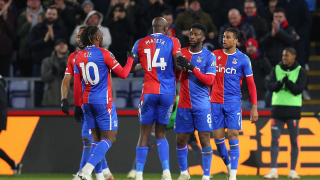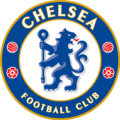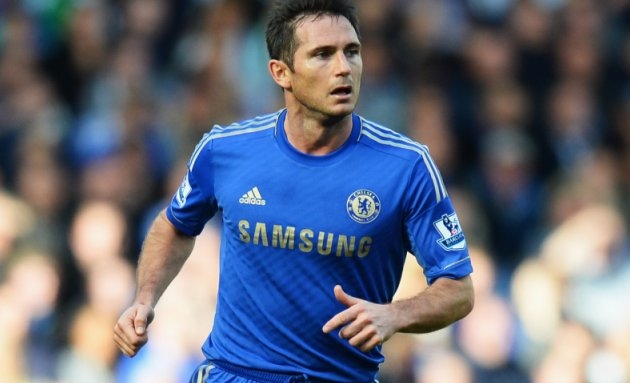From Porto to Chelsea and Inter Milan, Jose Mourinho has won trophies wherever he has coached - smashing eras and reputations in the process.
Here we break down his very best teams and the impact they had on football around the world.
FC PORTO 2002-2004: FLEXIBILITY AND RUTHLESS ORGANISATION
During two astonishing seasons at Porto Jose Mourinho won more or less every possible tournament, including two league titles, the Portuguese Cup, the Europa League, and the Champions League - a victory that thrust him into the limelight and drew the attention of Roman Abramovich at Chelsea.
When he first arrived at Porto, the Portuguese giants hadn't won the domestic title in four years and finished third in the season before his arrival, their lowest position since 1982. His extraordinary achievements remain among the best in football history, while remain the last club outside Europe's top four divisions to win the European Cup.
How they played
Mourinho's Porto were highly flexible but generally played in a diamond 4-4-2 formation. There was nothing particularly tactically innovative about them, and instead what really stood out was the incredible organisation of the collective. This was arguably the best drilled of all Mourinho's teams, playing in a very compressed shape while utilising an aggressive high line to catch opponents offside.
Their attacks focused mainly on Deco's creativity in the number ten role and the runs of forwards Benni McCarthy and Carlos Alberto. This was by no means a defensive side, but Porto certainly focused on compactness and resilience over creative expression.
That being said, one of Mourinho's greatest skills is reacting to the opposition, and throughout their Champions League run he would often switch between backs-to-the-wall defending and expansive possession, depending on the opposition.
Key match
Porto 3-0 Monaco, '04: The Champions League final was a tactical master class from Mourinho. His central midfield overwhelmed and dominated Monaco's system throughout the first half, leading to a 1-0 lead - and then came an ultra-defensive period when Porto had almost every man behind the ball. They counter-attack with a front three only, scoring twice more.
CHELSEA 2004-2006: RECORD-BREAKING DEFENSIVE DISCIPLINE
'The Special One' arrived in England in the summer of 2004 and changed the Premier League forever. His suave, arrogant style intoxicated the press, giving birth to an era of celebrity managers – and introducing the country to more sophisticated, defence-minded tactics.
Chelsea won the league title in 2005 and 2006, conceding a record low 15 goals and winning a then-record 95 points in that first year. Luis Garcia's ghost goal in the Champions League semi-final prevented the Portuguese from succeeding in Europe, but nevertheless he built something truly extraordinary with Didier Drogba, Arjen Robben, Claude Makele, John Terry, and Frank Lampard.
How they played
Mourinho switched to a 4-3-3 in England, which gave him a crucial tactical advantage in a country where 4-4-2 still reigned. Lampard was often the spare man in midfield, meaning he could arrive unseen to score while Drogba occupied the centre-backs. Dominating through the middle of the park was crucial for Jose.
However, most of their goals came from the flanks. The dribbling wingers Damien Duff and Robben tended to run infield, opening up space on the overlap for the marauding full-backs to fire crosses towards Drogba. Wayne Bridge and Paulo Ferreira had a bigger role than is often remembered.
But it was the defensive side that was most impressive. Again Mourinho coached ultra-compression between the lines, with a slightly deeper line than at Porto, and consequently Petr Cech kept a record 25 clean sheets in his first season. The importance of Makelele's role in the Makelele role cannot be overstated, while Ricardo Carvalho had a world-beating partnership with Terry.
Key match
Chelsea 3-0 Man Utd, '06: Mourinho's side wrapped up their second consecutive league title with two games to spare by hammering their nearest challengers on April 29. Sir Alex Ferguson was soundly beaten in a typical example of Chelsea's immaculate discipline, with Cristiano Ronaldo anonymous as the Blues picked up their 43rd clean sheet in 74 league games.
INTER MILAN 2008-2010: SHATTERING WORLD'S TIKI-TAKA OBSESSION
There is famous footage of Mourinho and Marco Materazzi sobbing together in the aftermath of Inter's Champions League win in 2010, not from joy but from the pain of saying goodbye. In two years in Italy Jose built a relationship with his treble-winning squad stronger than he would ever experience again in football.
Inter won Serie A in consecutive seasons, lifting the Italian Cup and Champions League in Mourinho's final year to make the Portuguese the first manager in history to win two trebles.
How they played
Mourinho reinstated the 4-3-1-2 used at Porto for Inter's domestic games, with Wesley Snjeider operating as the fulcrum in a number ten just as Deco had at Porto. They were relatively entertaining, too, regularly beating sides by two or three goals and counter-attacking at great speed.
However, this Inter side are more remembered for their Champions League run, and here Mourinho was more defensive than ever. At the height of tiki-taka in Spain, Jose deliberately set up his team in opposition to his rival Pep Guardiola, switching to a backs-against-the-wall 4-2-3-1 for those European knock-out ties.
The aim was to shut opponents down, absorbing pressure and happily letting the other team have the ball for long periods of the match. At the time, that was a bold and innovative approach during a period when dominating possession was seen as the only route to victory. Inter's steely defence and their wingers' tireless tracking back was an emphatic rejection of the fashion.
Key match
Barcelona 1-0 Inter Milan, '10: Although Inter's 3-1 win in the first leg of the semi-final deserves recognition, showing the other (more creative, exciting) side of Mourinho's Inter, their 1-0 defeat at the Nou Camp is legendary. Guardiola's Barca had 86% possession but couldn't break through the brick wall. It was the ultimate act of defiance from Mourinho, sparking one of the sport's great rivalries.
REAL MADRID 2010-2012: SCINTILLATING FOOTBALL BREAKS PEP
The most frequently overlooked period of Mourinho's career is at Real, and although he only won one title in three years in La Liga it shouldn't be forgotten he toppled Guardiola's Barcelona, arguably the greatest team in football history –and he did it playing attacking football.
Real also won the Copa del Rey in 2011, plus over a three-year span at the club Mourinho achieved a 71.9% win percentage, the highest of his career to date. However, the ignominy of his final year and the team's collapse would become a template for Mourinho's later spells at Chelsea and Man Utd. He never truly recovered from the emotional toll this stint took.
How they played
In short, Real played arguably the best counter-attacking football in the history of the sport. Once again he didn't press high but pressed aggressively, keeping men behind the ball in a ruthlessly organised midblock, but whereas at Porto, Chelsea, and Inter he would attack in twos and threes Real were let off the leash.
Cristiano Ronaldo enjoyed the best years of his career on the left wing under Mourinho, scoring 86 goals in 72 La Liga games between 2010 and 2012, largely because he was allowed to stay high and wait for the break. When it came, he had Karim Benzema (or Gonzalo Higuain), Mesut Ozil, Angel di Maria, and Marcelo supporting.
Unlike his previous clubs, this time Mourinho deployed two holding midfielders in Sami Khedira and Xabi Alonso, which allowed that front five to run wild. Real were rampant, scoring 102 and 121 goals in 2010/11 and 2011/12 respectively, more than Lionel Messi's Barca.
Key match
Barcelona 1-2 Real Madrid, '12: Real were top of the league by four points with five matches remaining, making El Clasico at the Nou Camp a title decider. Pep left Alexis Sanchez on the bench and played an uncharacteristic defensive line-up, fearful of the Real threat, only for Ronaldo to win the game regardless. Mourinho had got into Guardiola's head. He resigned that summer and took a sabbatical to get over the stress.
CONCLUSION
There are strong similarities running through all of Mourinho's top sides, which makes it particularly difficult to separate them. Real Madrid undoubtedly played the best football, but winning only one major trophy rules them out, and while he broke records at Chelsea the riches he spent perhaps lessen that achievement.
What Porto did will never happen again, but we believe Mourinho's greatest achievement is winning the treble with a defensive Inter side at a time when Guardiola's possession-style football ruled the world.

